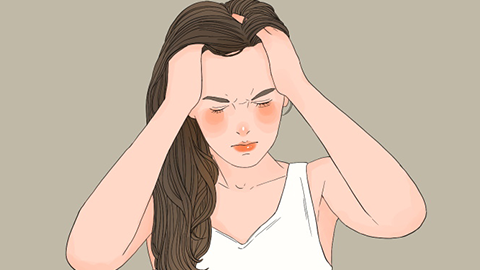What causes easy mental tension?
Generally, being prone to mental tension may be caused by neurotransmitter imbalances, personality traits, adjustment disorders, social anxiety disorder, pheochromocytoma, and other reasons. It is recommended to seek medical attention promptly, identify the underlying cause, and receive symptomatic treatment under a doctor's guidance. Specific analyses are as follows:

1. Neurotransmitter Imbalance: Abnormal secretion of serotonin and dopamine can affect emotional regulation and trigger feelings of tension. Maintain regular meals, eat more amino acid-rich foods such as bananas and nuts, and combine with 15 minutes of deep breathing exercises daily to help stabilize neurotransmitter levels.
2. Personality Traits: Sensitive or perfectionistic personalities tend to overly concern themselves with others' evaluations, leading to tension. Actively participate in group activities to gradually strengthen psychological resilience and learn to accept personal shortcomings with a calm mindset.
3. Adjustment Disorder: Difficulty adapting quickly to environmental changes or life events may trigger tension. Patients may take medications such as sertraline hydrochloride tablets, fluoxetine hydrochloride capsules, or fluvoxamine maleate tablets as prescribed, along with supportive psychotherapy.
4. Social Anxiety Disorder: Persistent tension and fear in social situations, accompanied by symptoms such as blushing and rapid heartbeat, are characteristic. Medications such as paroxetine hydrochloride tablets, alprazolam tablets, or venlafaxine hydrochloride sustained-release tablets should be taken as directed by a physician, combined with exposure therapy to improve symptoms.
5. Pheochromocytoma: This tumor secretes catecholamines, causing sympathetic nervous system overactivity and resulting in episodic tension and elevated blood pressure. Medications such as phentolamine mesylate tablets, propranolol hydrochloride tablets, or nifedipine controlled-release tablets may be used under medical supervision to control symptoms. Laparoscopic resection of the pheochromocytoma is required to eliminate abnormal hormone secretion by removing the tumor.
In daily life, avoid chronic sleep deprivation and excessive consumption of strong tea. Cultivate calming hobbies such as calligraphy or fishing, and spend leisure time outdoors breathing fresh air to help alleviate mental tension.




